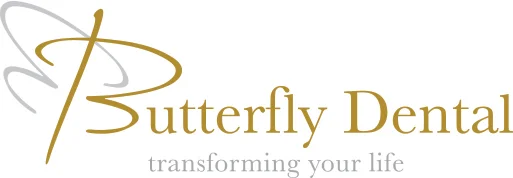Happy new year from Butterfly Dental!
It’s that time of year again where many of us are a on a health kick, giving our diets a complete overhaul! But how many of us think about the effects of a new diet on our teeth? Let’s take a look at the winners and losers...
The 5:2 Diet
This diet involves ‘fasting,’ restricting your calorie intake for two days a week by having one small meal per day, while eating normally on the other five days. In terms of dental health, teeth are more vulnerable to the frequency of sugar intake, as opposed to the amount. For example, eating a bag of sweets all in one go is better for the health of your mouth than eating them one by one throughout the course of the day. So, by reducing the frequency of meals on fast days, you’re also reducing the frequency of potential sugar intake, and as this diet places emphasis on making the sole meal on your fast days a healthy one, it’s likely you will be eating something low in sugar as well!
Dukan Diet
This is a low-carb, high protein diet. This diet may help to reduce the chances of tooth decay as many foods high in carbohydrates, such as breads and cereals, can stick to the teeth for a while after eating and may be hard to remove. However, eating a lot of protein increases the likelihood of bad breath, so watch out for this possible side-effect!
Paleo Diet
This seems to be quite a popular diet at the moment. It involves removing foods from the diet that are unlikely to have been available to our prehistoric ancestors. This includes the removal of added sugar, which gets a massive thumbs-up from us, however it’s still important to watch out for the sugars that naturally occur in fruit.
The Atkins Diet
This is another high-protein, low-carb diet. This is a good formula for healthy teeth and gums, but many of the recipes advise the dieter to add lemon or lime juice for flavouring, which is very acidic and can cause problems for tooth enamel. The diet also suggests other products as alternatives between meals, including chocolate bars, milkshakes and breakfast porridge, all of which have a very high sugar content and are not good for teeth. It would be more advisable to have fruit, nuts, water and milk as alternatives to help prevent any tooth decay and/or erosion.
The Alkaline/Acid Diet
This diet is based on separating food types. It advocates eating the same type of food type together, such as a bowl of fruit consisting of lemons and grapefruits with blended strawberries and blackberries. Although nutritionally very healthy, this could prove very erosive for teeth if carried out on a daily basis due to the high acid content of these foods. It also provides recipes which contain acidic dressings on top of many of the main meals, probably to provide taste. Again, the consequence of these being used on a repetitive basis could be quite harmful, and diluting them and using alternative dressings would be better.
The Cambridge Diet
This diet is similar to the Atkins diet, although bases itself on usage of its own products in the first few weeks of starting it. The products mainly consist of soups, shakes and porridge. The chocolate bars are advertised as chewy, and are syrup and caramel based, which could be difficult to remove from the teeth, and may cause problems! The diet promotes the use of herbal teas, and water flavouring, which could potentially lead to problems for tooth enamel such as acid erosion, which is a major cause of tooth sensitivity.
Choosing a diet to follow (if any), can be daunting and as we all know, they are notoriously hard to stick to! However it’s good to know that if you do choose to change your eating habits, your dentist will be happy as long as you keep your diet low in sugar and limit potentially damaging foods and drinks to mealtimes wherever possible. So don’t feel too bad about cheating the diet and grabbing some fish and chips instead of the salad!


